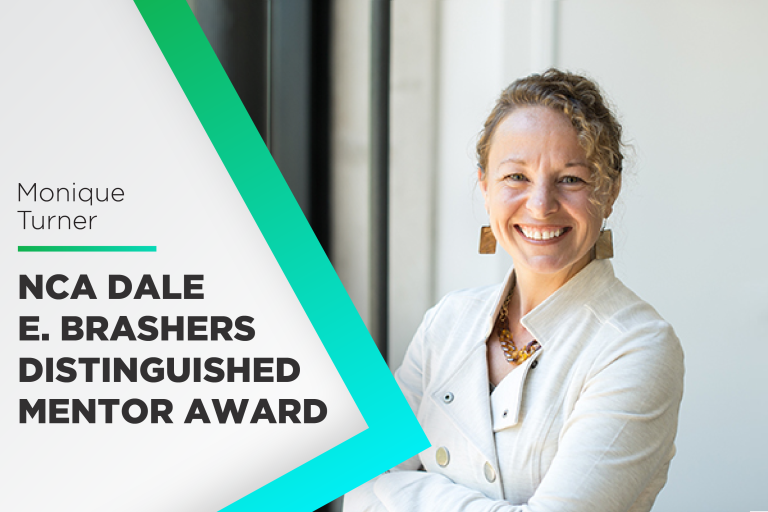Monique Turner, professor and chair of the Department of Communication at Michigan State University, is the 2021 recipient of the National Communication Association Dale E. Brashers Distinguished Mentor Award.
The award, given& each year at the NCA annual convention, recognizes those who make “significant contributions to the field of health communication through mentorship of and advocacy for the discipline and its members.”
“Mentoring students is one of the main reasons I do this job,” Turner said. “Having the opportunity to work with graduate students, teach them our craft, and be there when they have cool, exciting ideas is an honor. I’ve learned so much from my students—so, it means a lot to me that they thought I was deserving of this award.”
This year’s NCA convention takes place Nov. 18-21 in Seattle.
Turner was nominated for the award by colleagues Kami Silk, Edward F. and Elizabeth Goodman Rosenberg Professor and chair of the Department of Communication at the University of Delaware, and Sandi Smith, MSU University Distinguished Professor.
In the nomination letter, Smith and Silk highlighted Turner’s mentoring attributes, as well as her commitment to the field.
“When one considers the focus of the award is on mentoring and advocacy for the field, Monique clearly exemplifies the spirit of the award in all of her activities,” they said in the letter. “At the individual level she supports her students and faculty mentees so they are reaching their personal and professional goals, and at the institutional and programmatic levels she continues to advance health communication through her administrative, service, and research contributions.”
As Turner’s career has advanced to where she is today, she reflects on how she got here and offers advice to those early in their careers.
“...I tell students that work with me now how many times I fell on my face, had ideas that didn’t work, award nominations that did not come through and journal rejections,” Turner said. “And, yet, it all turned out okay.”
Turner said she is excited about the future of the Department of Communication and is proud of the people who work alongside her.
“This department is constantly evolving and yet, we are also traditional,” she said. “My colleagues and I are testing old theories and building new ones. We are employing new and innovative methods to measure behavior, emotion and cognition precisely. We, as a group, believe that uncovering the psycho-social processes underlying communication is a critical contribution to science—and we will keep doing that work.”
